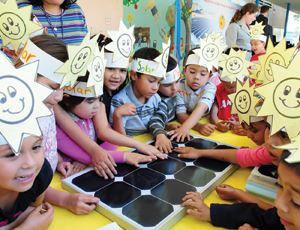As the global-warming and sustainable-energy bill H.R. 2454 burrows its way through Congress, one important thing to remember, whether you are pro or con, is that change does not happen by itself—someone has to make it happen. Parts of the carbon-emissions argument are controversial for sure with spinmeister Al Gore accused of pushing message at the expense of science. But few tend to argue about other parts of the issue, like the need for more sustainable-energy sources, better energy performance in new and existing buildings and energy independence in general.

The energy debate ran hot and heavy for a while in late 1973 when Arab nations imposed an oil embargo on the U.S. in retaliation for its support of Israel in the Yom Kippur War. But the debate and interest faded along with the long lines at gas stations. We only now are seeing a renewed surge of interest in better vehicle fuel economy and sustainable-energy sources after petroleum and natural-gas prices hit record levels, in some cases filling the coffers of nations and organizations that work against the U.S.
There have been advances in technology that make photovoltaics, as well as wind, wave and geothermal energy cheaper and more effective. And a new generation is interested in the benefits.
Research and education is the key, but how do you drive it? The situation is similar to the frustration in the Environmental Protection Agency’s 25-year campaign to get the lead out of gasoline. That effort coincidently began in 1973, with the final action by EPA administrator Carol M. Browner on Jan. 29, 1996. A lot of people thought that EPA was taking the “good stuff” out of gasoline that boosted octane and protected valve seats, but 200,000 tons of the toxic stuff ended up in the atmosphere each year. Today, we take unleaded gas and ultra-low-sulfur diesel fuel for granted, and performance has not suffered as equipment innovation keeps pace. Here, regulation was the driver.
Even school children can understand the benefits of sustainability. On May 21, the Los Angeles Unified School District celebrated the new solar-power system at the El Dorado Avenue Elementary School. It is one of the first LAUSD schools to be grid-neutral, producing as much electricity as it uses. The district plans to install 50 MW of solar power by 2012. Instead of going green being an oddity, there now is a new generation passionate about sustainability. Perhaps with a tuneup, H.R. 2454 will be an eco-friendly tool that can change behavior.

Post a comment to this article
Report Abusive Comment